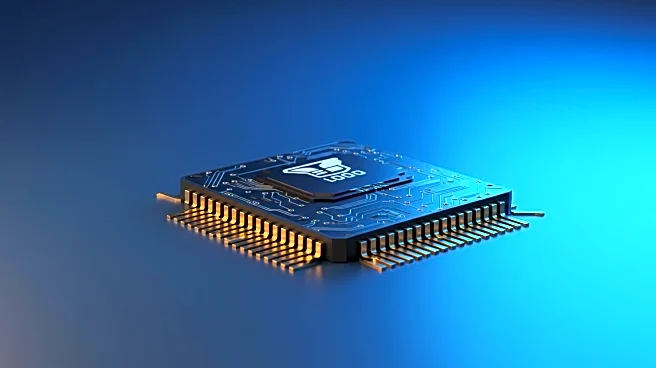What is the story about?
What's Happening?
Advanced Micro Devices (AMD) experienced a decline in its stock value following the emergence of rumors regarding its upcoming Zen 7 processors. These rumors suggest that AMD's next generation CPUs will continue to utilize the existing AM5 socket platform, allowing users to upgrade without needing new motherboards or RAM. This contradicts earlier speculation that the Zen 7 processors would introduce a new AM6 socket. The information was leaked by YouTuber Moore's Law is Dead, who compared the situation to the development of AMD's Zen 3 CPUs, which were initially planned for the AM5 socket but switched to AM4 late in development. The decision to stick with the AM5 socket offers compatibility with existing motherboards, potentially boosting sales as users can upgrade more affordably. However, it may limit sales to customers seeking the latest DDR6 RAM.
Why It's Important?
The decision to maintain the AM5 socket platform for Zen 7 processors has significant implications for AMD's market strategy. By ensuring compatibility with existing motherboards, AMD could see increased sales from users looking to upgrade without incurring additional costs for new hardware. This approach may enhance customer loyalty and expand AMD's user base. However, it also poses a risk of losing potential sales from customers eager to adopt the latest RAM technology. The stock decline reflects investor concerns about these strategic choices and their impact on AMD's competitive position against rivals like Intel, which recently received substantial investments from the U.S. government and SoftBank.
What's Next?
AMD's stock movement may continue to be influenced by further developments in the Zen 7 processor rumors and the company's strategic decisions regarding socket compatibility. Investors and analysts will likely monitor AMD's announcements closely to assess the potential impact on sales and market share. Additionally, the U.S. government's investment in Intel could intensify competition in the semiconductor industry, prompting AMD to reevaluate its strategies to maintain its market position.















